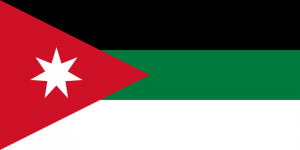Language/North-levantine-arabic/Vocabulary/Fruits
Hi North Levantine Arabic learners! 😊
In this lesson, we will expand our vocabulary related to fruits in North Levantine Arabic. Fruits are an important part of the Arabic culture and they are often used in different dishes as well as in discussions.
Finish this lesson and explore these related pages: Health & Animals.
Importance of Fruits in North Levantine Arabic Culture[edit | edit source]
Fruits have significant importance in the Arabic culture. They are used in various ceremonies and functions. Moreover, seasonal fruits are used in many dishes prepared in the Arab world. For example, one of the most famous sweet dishes in the Arab world is Umm Ali, which consists of milk, nuts, and fruits. Therefore, fruits are not just tasty, they are also an important part of the culture.
North Levantine Arabic Vocabulary - Fruits[edit | edit source]
Here is a list of the most commonly used fruits in North Levantine Arabic:
| North Levantine Arabic | Pronunciation | English Translation |
|---|---|---|
| تفاح | Tuffaah | Apple |
| موز | Mawz | Banana |
| عنب | ‘Anab | Grape |
| مانجا | Mānja | Mango |
| تمر | Tamar | Date |
| برتقال | Burtaqāl | Orange |
| جوافة | Jawāfa | Guava |
| خوخ | Khawkh | Peach |
| بطيخ | Batikh | Watermelon |
| بلح | Balah | Fig |
| عنصر | ‘Inab | Raisin |
| ليمون | Laymoon | Lemon |
| ليتشي | Līchī | Lychee |

Let's see some examples of these fruits in context:
- Person 1: تفاح (Tuffaah)
- Person 2: أنا أحب التفاح. (Ana ahibb at-tuffaah) (I like apples.)
- Person 1: موز (Mawz)
- Person 2: هل تحب الموز؟ (Hal tihubb al-mawz?) (Do you like bananas?)
- Person 1: تمر (Tamar)
- Person 2: أفضل أكل التمر في رمضان. (Afḍal 'akl at-tamr fi Ramadhan.) (I prefer eating dates in Ramadan.)
Interesting Facts About Fruits in North Levantine Arabic[edit | edit source]
- Pomegranates are often used as a symbol of fertility and prosperity in the Arab world. They are also used in some traditional medicines.
- The fig tree is considered one of the most blessed trees in the Arabic culture. In the Quran, Maryam (Mary) is said to have given birth to Prophet Isa (Jesus) under a fig tree.
- Dates are the most common fruit used in Ramadan. After breaking the fast, it is customary to eat a few dates and then have a meal.
Practice and Improve Your Vocabulary[edit | edit source]
To improve your vocabulary, you can also use the Polyglot Club website. Find native speakers and ask them any questions. Don't forget to check the Vocabulary page for more words and exercises.
Sources[edit | edit source]
➡ If you have any questions, please ask them in the comments section below.
➡ Feel free to edit this wiki page if you think it can be improved. 😎
Other Lessons[edit | edit source]
- Greetings
- Clothes
- How to Say Hello and Greetings
- Count to 10
- Idiomatic Expressions
- Drinks
- Colors
- Feelings and Emotions
- Food

